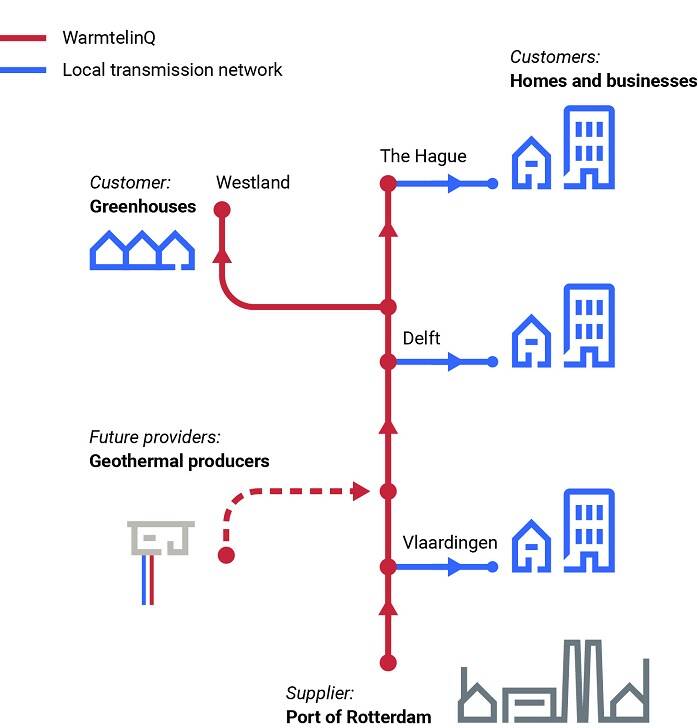In Public Hands
The Minister of Economic Affairs and Climate Policy has not adequately explained why he is charging the state owned enterprises Gasunie, EBN and TenneT with new statutory tasks for the further development of the energy transition. The Netherlands Court of Audit comes to this conclusion in an audit report on the state owned enterprises’ new statutory tasks in the transition to renewable energy that it published on 24 June 2021.
The government is pursuing energy transition in order to achieve its climate goals. The transition to renewable energy requires a new energy infrastructure. The government thinks state owned enterprises, companies in which the government holds shares, have a part to play. The Minister of Economic Affairs and Climate Policy (EZK) has therefore decided that 3 state owned enterprises – Energie Beheer Nederland (EBN), Gasunie and TenneT – will carry out new tasks to develop the new energy infrastructure.
What did we audit?
In the audit report, In Public Hands – New energy transition tasks for state owned enterprises, we write that the minister has provided parliament with little insight into how much public money will be invested in the new tasks. However, he has protected the public interest regarding the financing and management of the new tasks.
The new renewable energy infrastructure will comprise a heat transmission network, the production of geothermal energy and offshore wind farm connections to the existing onshore electricity grid. The involvement of Gasunie, EBN and TenneT will require billions of public euros.
Limited study of alternatives
The minister has carried out only limited studies of alternatives to develop a new infrastructure for the transition from fossil fuels to renewable energy that do not involve these three companies, which are all 100% state owned. The minister has also inadequately shown how the involvement of these companies will contribute to the public interest in terms of, for instance, supply security and affordability.
Cost to citizens and businesses largely unknown
The Minister of EZK along with the Minister of Finance as the shareholder of Gasunie and TenneT and others have gone to substantial lengths to arrange efficient financing structures and can intervene in the construction of the network through legislation and regulation. How much the involvement of these state owned enterprises will cost citizens and businesses, however, is still largely unknown. Parliament has to date not received appropriate information from the minister.
Gasunie can connect heat providers and customers through WarmtelinQ

An example of the involvement of state owned enterprises is Gasunie’s participation in the development of WarmtelinQ to transmit excess heat from the Port of Rotterdam to Delft, The Hague, other towns and greenhouses in Westland. When this project was in danger of stalling under the management of the commercial energy company Eneco, the minister asked Gasunie to step in and manage WarmtelinQ so that the task would be in public hands. WarmtelinQ must contribute to the national climate goals but it is not clear how much CO2 it will save. The project should be a cost efficient solution but a cost estimate had not been made at the time of our audit.
EBN, which has traditionally borne the risk in oil and gas concessions, also bears the risk in geothermal energy projects. It can invest up to €161 million in such projects over five years. TenneT has been tasked with connecting offshore wind farms to the onshore electricity grid, at a cost of more than €4 billion in public money. In all 3 examples, members of parliament cannot properly assess whether the total costs are proportionate to the contributions from the treasury because the minister has provided them with only limited information.
What recommendations do we make?
We recommend that the Minister of EZK carefully and auditably consider how state owned enterprises can be involved in the energy transition. This includes the involvement of central government, the instruments to be used and the parties concerned. Parliament should receive a timely explanation of the costs and know how much will be contributed from the treasury. We recommend that the Minister of Finance make agreements on how the shareholder of a state owned enterprise will be involved in the energy transition decisions taken by line ministries.
Current status
In a written response, the ministers concerned responded positively to our recommendations. We briefed the House of Representatives on our audit report and published it on 24 June 2021.